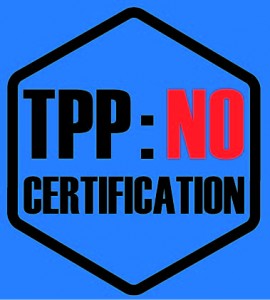 A new website has been launched today (www.tppnocertification.org) that documents the extraordinary process of ‘certification’ through which the United States claims the right to vet and approve other countries laws before it will allow a trade and investment treaty to come into force.
A new website has been launched today (www.tppnocertification.org) that documents the extraordinary process of ‘certification’ through which the United States claims the right to vet and approve other countries laws before it will allow a trade and investment treaty to come into force.
This process has existed for many years, but it has been used more intensively in the past decade because Congress was dissatisfied with how some countries had been implementing their US free trade agreements.
The draft Fast Track legislation introduced to Congress several months ago contains a new and extensive certification provision:
CONSULTATIONS PRIOR TO ENTRY INTO FORCE – Prior to exchanging notes providing for the entry into force of a trade agreement, the United States Trade Representative shall consult closely and on a timely basis with Members of Congress and committees as specified in paragraph (1), and keep them fully apprised of the measures a trading partner has taken to comply with those provisions of the agreement that are to take effect on the date that the agreement enters into force.
Very little has been known about certification, even by negotiators.
A comprehensive memorandum on certification explains the certification process and how it has been used.
The website also reveals the extraordinary degree of intervention by the US Trade Representative (USTR) in the drafting of Peru’s laws as part of the certification process for the Peru-US free trade agreement. The USTR actually drafted Peru’s legislation and demanded that it be accepted without change.
Letters from members of the US Congress to the President or the USTR, and the USTR’s annual reports on perceived trade barriers in specific countries, provide indications of what the Congress may demand under certification. These are summarised on a country-specific basis on the website.
The Congress can be expected to make some generic demands on matters such as intellectual property for medicines, so-called currency manipulation, and protection of US Buy America policies. Each TPPA country will also face specific pressures, ranging from government procurement and state-owned enterprises to labour and human rights laws.




